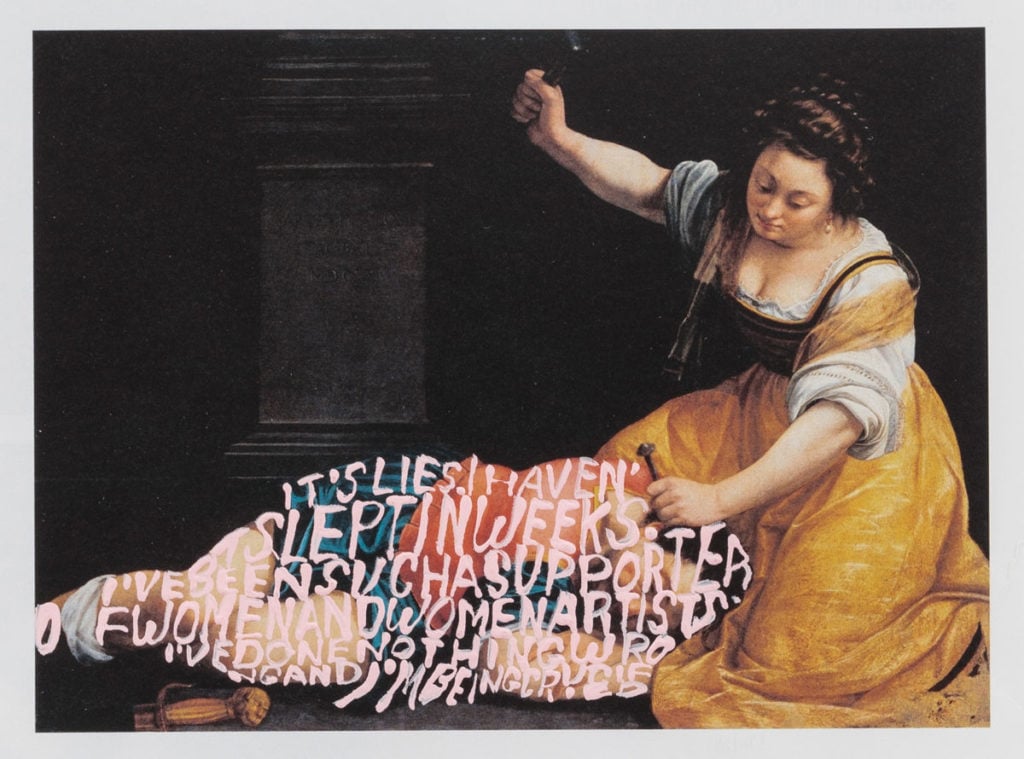Art World
Betty Tompkins Accused Instagram of Failing to Follow Its Own Nudity Guidelines for Art. Then It Censored Her Account—Again
The artist was invited to attend a closed-door meeting at Facebook and Instagram to discuss censorship policies.

The artist was invited to attend a closed-door meeting at Facebook and Instagram to discuss censorship policies.

Caroline Goldstein

On Monday, Facebook and Instagram invited 20 professionals in the art world to visit the company’s New York offices and discuss its censorship practices, which disproportionately affect women, both as subjects of art and as artists themselves.
One of the invitees was artist Betty Tompkins, best known for her series of “Fuck Paintings,” which are based on pornography but are in fact hyper-realistic paintings. Though Tompkins wasn’t able to attend the closed-door meeting that day—and those that did were forced to sign non-disclosure agreements—she sent in a statement to be read on her behalf. Part of the statement highlighted the fact that Tompkins’s work is not actually in violation of the social media giant’s own rules and regulations. “Instagram does NOT follow its own guidelines which are very clear: ‘Nudity in photos of paintings and sculptures is OK, too.’ There are no qualifiers here.”
Tompkins posted part of her written statement to Instagram later in the week, but then, in a particularly bitter twist, had her account suspended once again.
Tompkins also had her account disabled in early 2019 after she posted a photograph of Fuck Painting #1 (1969)—in the catalogue for a show called “In the Cut” at Stadtgalerie, Saarbrücken, Germany—prompting a swift campaign for her reinstatement. “Instagram has nominated themselves to be the online voice for the art world. And they’ve succeeded. You can’t be active in the art world without a voice on Instagram,” Tompkins told ARTnews, which originally reported on the Facebook meeting.
Other artists have protested the social media companies’ policies as well. Over the summer, photographer Spencer Tunick assembled an army of nude activists to pose in front of Facebook’s offices, their bodies covered with blown-up photographs of male nipples, which, per the site’s guidelines, are okay to post. That action, which was organized in collaboration with the National Coalition Against Censorship, prompted Facebook to announce the meeting that just took place.
Though the coalition remains optimistic about progress at the social media company, it also told artnet News via email that “the only solid commitment made by Facebook was its intention to issue clarification around its guidelines that regulate what appears in searches and hashtags.” There remains no appeals process, “nor is there a public definition of what is ‘inappropriate.'”